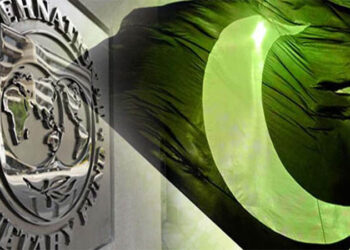 He said the center would be established at King Abdulaziz City of Science and Technology (KACST), adding that it would develop applications for energy conservation.Prince Abdul Aziz was speaking at an international energy symposium being held in Riyadh to mark the golden jubilee of the 12-member Organization of Petroleum Exporting Countries (OPEC).”Details of the national energy conservation center will be announced soon after completing measures for its establishment,” said the prince who presided over a session titled “Relations between OPEC and other international organizations.”He emphasized the importance of dialogue between producers and consumers of oil and gas and between OPEC, the International Energy Agency and International Energy Forum to achieve oil market stability.“This will help protect the interests of all players in the market and boost sustained development of all nations,” Prince Abdul Aziz told delegates including oil executives and academics.He commended Saudi Arabia’s support of the three leading energy organizations. He also stressed OPEC’s efforts to fight poverty and support other humanitarian issues. He called for solving all outstanding issues quickly without wasting time.“We can solve all problems through frank and transparent discussions and with a comprehensive outlook about the market,” the minister said.
He said the center would be established at King Abdulaziz City of Science and Technology (KACST), adding that it would develop applications for energy conservation.Prince Abdul Aziz was speaking at an international energy symposium being held in Riyadh to mark the golden jubilee of the 12-member Organization of Petroleum Exporting Countries (OPEC).”Details of the national energy conservation center will be announced soon after completing measures for its establishment,” said the prince who presided over a session titled “Relations between OPEC and other international organizations.”He emphasized the importance of dialogue between producers and consumers of oil and gas and between OPEC, the International Energy Agency and International Energy Forum to achieve oil market stability.“This will help protect the interests of all players in the market and boost sustained development of all nations,” Prince Abdul Aziz told delegates including oil executives and academics.He commended Saudi Arabia’s support of the three leading energy organizations. He also stressed OPEC’s efforts to fight poverty and support other humanitarian issues. He called for solving all outstanding issues quickly without wasting time.“We can solve all problems through frank and transparent discussions and with a comprehensive outlook about the market,” the minister said.
OPEC Secretary-General Abdalla El-Badri spoke about his organization’s success in confronting challenges during the past five decades, adding that it has played a big role in boosting world economy. “OPEC will continue its efforts to promote dialogue between producers and other organizations,” he said.El-Badri added: “OPEC will remain committed to the promises that were agreed in Baghdad 50 years ago to ensure market stability, efficient and regular supplies of oil, steady income for producers and a fair return on capital for those investing in the petroleum industry.” He said OPEC continues to hold dialogue with countries and organizations in order to address the challenges and uncertainties facing the global oil market.
Nobuo Tanaka, IEA executive director, said that stability in oil price is in everyone’s interest. He predicted that the oil would continue to play a significant role in years to come. “Our calculations suggest that the role of OPEC and the interdependence will grow,” said Tanaka, adding that OPEC’s share of world production will increases from 41 percent in 2009 to 52 percent in 2030.He, however, lamented that many poor household in developing countries still have no access to modern energy services. “We estimate that 1.4 billion people lack access to electricity and 2.7 billion rely on the traditional biomass for cooking, which is both time-consuming and unhealthy,” said the IEA chief. So, prioritizing “energy access” is a key driver of social and economic development, he added.
He said that the OECD countries from which IEA draws its membership now represent less than 50 percent of global energy demand, compared to 75 percent in 1974, when IEA was created. Against this background, Tanaka said that “our main aims are three Es — energy security, economic growth and environmental protection. We have added a fourth E — engagement with emerging economies.”On the need to enhance and deepen global oil producer and consumer dialogue, Noe van Hulst, IEF secretary-general, said that the Cancun ministerial declaration has enhanced IEF’s scope of work and responsibilities. He said that IEF has been closely working with the OPEC and all other energy-related organizations – Arabnews











